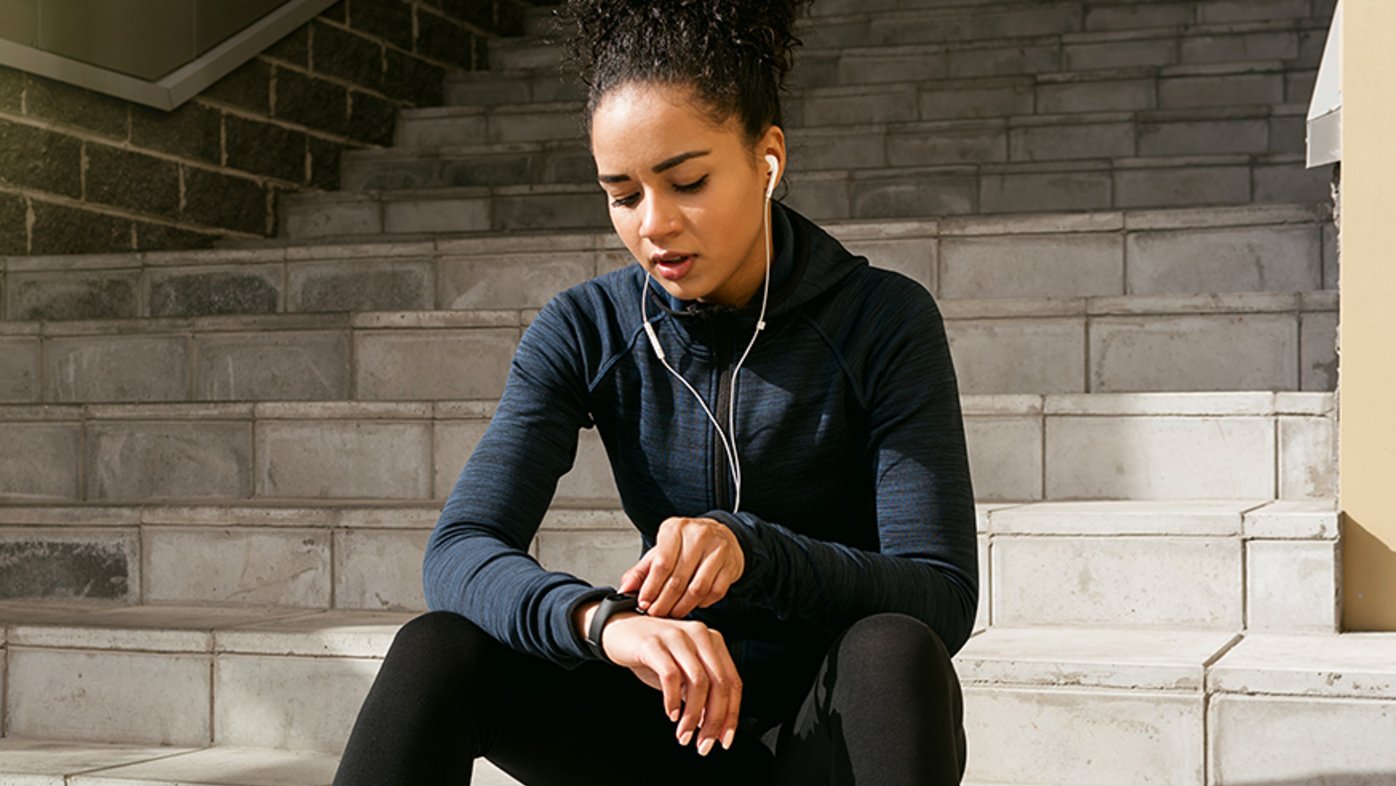
Are wearable health trackers accurate?
Learn how wearable health trackers can provide valuable support on your personal health journey.
In an effort to lose stubborn pounds, it is not unusual to fall victim to all kinds of weight-loss claims that promise quick results. One common myth is that working out on an empty stomach burns more fat.
According to Olga Hays, an American Council on Exercise-certified wellness promotion specialist at Sharp HealthCare, the idea stems from the theory that your resting metabolism continues to work overnight when you are asleep, leaving very little carbohydrates available for workouts in the morning.
“The thinking goes that because its glycogen (energy) stores are now low, your body will be forced to use an alternative energy source and to tap into its fat reserves to keep you going through your workout,” says Hays. “And while research supports this theory, there are a couple of reasons why fasted exercise may not be a good choice over the long-term.”
Workout quality may suffer
When you squeeze in a sweat session before breakfast, your muscles will be low in glycogen — the stored carbohydrate that your body uses as its preferred energy source. Running low on glycogen can affect your performance, as you may feel tired and may not be able to train hard. Potential side effects could also include dizziness or nausea.
Muscle burning
Exercising in a fasted state may help burn more fat, but it can also cause the body to burn muscle for fuel in addition to fat. Even if the percentage of muscle burnt is comparatively small, it can be detrimental to the long-term success of any weight- or fat-loss program. Muscle is an active tissue that boosts your metabolism and caloric expenditure. The more muscle you have, the more fat you can burn throughout the day.
Hays suggests nourishing your body with a protein shake, low-fat Greek yogurt or half of a banana with a teaspoon of peanut butter to have energy for a quality workout session. This will also help combat muscle loss.
If you do decide to exercise first thing in the morning on an empty stomach, you can do the following to avoid any drawbacks:
Eat a nutritious snack two hours before you go to bed.
That way when you wake up, you will still have some supply of calories in your stomach to power you through your workout.
Remember to fuel up properly after the workout.
If eating before exercise makes your stomach turn, make sure to eat a solid breakfast such as eggs with veggies, or oatmeal with fruit, within two hours post-exercise to regain energy and rebuild muscle tears.
“Science shows that ultimately there is no significant difference between exercising on an empty stomach and eating something before your workout. What matters is how you feel and what makes you comfortable,” Hays explains.
“For sustained and safe weight loss, it is better to simply focus on consistency and making sure you exercise regularly, and not worry about pairing your workouts with fasts,” she adds. “What is vital is staying hydrated before, during and after your workout.”
Learn how much water you should drink while exercising.
Our weekly email brings you the latest health tips, recipes and stories.